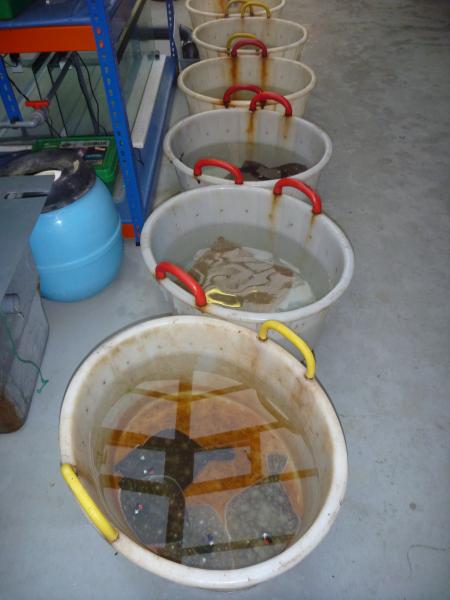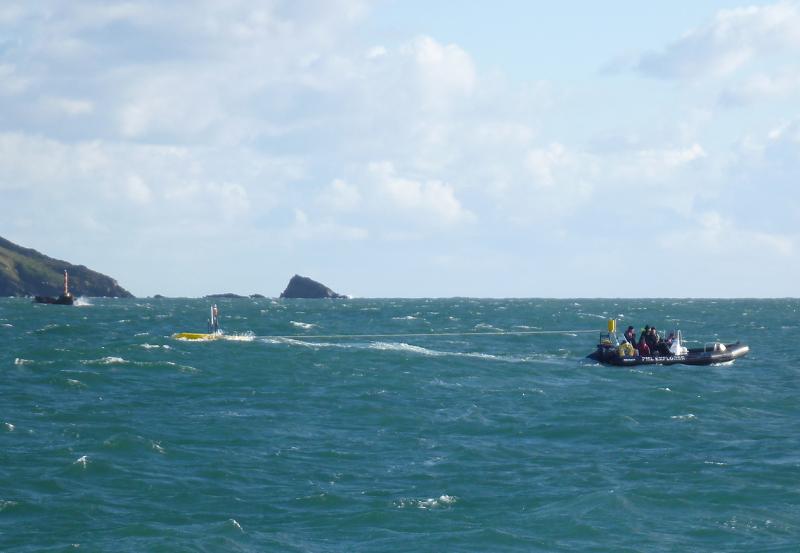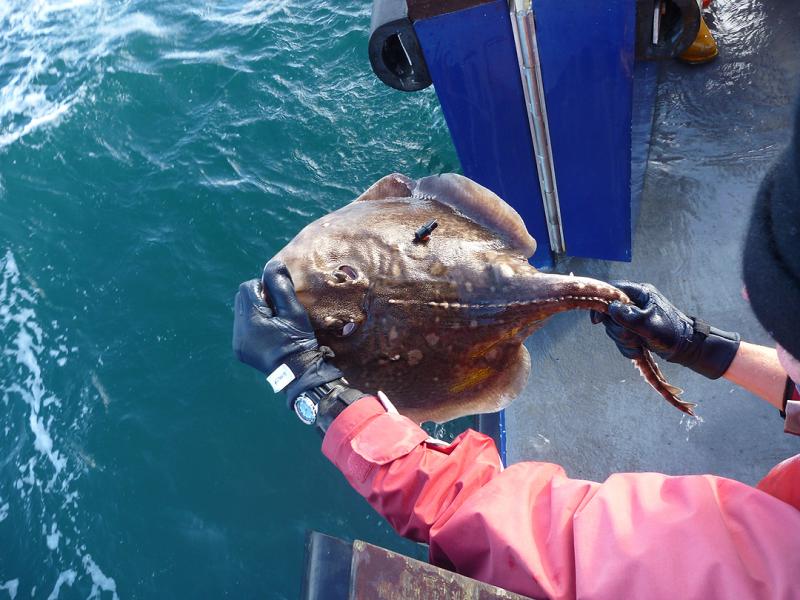Robotic vehicles successfully track tagged fish off Plymouth
 Three unmanned surface vehicles have been operating south of Plymouth this week in an exciting trial designed to test their ability to track tagged fish. These new robotic vehicles, which are part of a fleet operated by the National Oceanography Centre, include a Liquid Robotics SV3 Waveglider, the MOST AV AutoNaut and the ASV C-Enduro.
Three unmanned surface vehicles have been operating south of Plymouth this week in an exciting trial designed to test their ability to track tagged fish. These new robotic vehicles, which are part of a fleet operated by the National Oceanography Centre, include a Liquid Robotics SV3 Waveglider, the MOST AV AutoNaut and the ASV C-Enduro.
The vehicles derive their propulsion and power from a combination of wave, wind and solar energy, enabling them to operate offshore for weeks to months without direct human intervention.
The trial, which is being co-ordinated by the Marine Biological Association, involved the release of up to 85 tagged fish in and around Marine Protected Areas south of Plymouth prior to the vehicles being deployed.
The objective was to test whether the tagged fish could be detected and tracked using the robotic surface vehicles, which are controlled entirely through satellite communications. In addition, a series of seabed receivers were also deployed to provide longer term information on fish movements in certain parts of the study area. The results will provide scientists with new information about how fish use these protected sites, which will inform future management measures.
 The Waveglider and the AutoNaut were both recovered this morning in challenging conditions, with strong spring tides and winds gusting to over 50mph. During the recovery of the AutoNaut at a location near Heybrook Bay, the vehicle sustained some damage but most of the key instruments on board were recovered. It is intended that the C-Enduro will complete its trial deployments early next week.
The Waveglider and the AutoNaut were both recovered this morning in challenging conditions, with strong spring tides and winds gusting to over 50mph. During the recovery of the AutoNaut at a location near Heybrook Bay, the vehicle sustained some damage but most of the key instruments on board were recovered. It is intended that the C-Enduro will complete its trial deployments early next week.
Preliminary results indicate that the robotic vehicles have successfully detected some of the tagged fish, which include species such as plaice and thornback ray.
Dr Stephen Cotterell of MBA said “This is the first time that robotic vehicles have been used to track the movements of multiple species of tagged fish in a single study. This successful trial opens up lots of exciting possibilities for novel scientific research, and the method also has many applications for marine conservation”.
 Dr Russell Wynn of NOC, said “Our ongoing programme of sea trials off southwest UK has seen the new fleet of robotic vehicles operating in typically harsh weather conditions. We are therefore delighted that all of the vehicles have been successfully recovered, and that they have gathered a huge amount of valuable scientific and engineering data. Further exciting trials are planned in the coming months, which will continue to test the capabilities of these unmanned vehicles and their potential for undertaking novel scientific research throughout the world's oceans.”
Dr Russell Wynn of NOC, said “Our ongoing programme of sea trials off southwest UK has seen the new fleet of robotic vehicles operating in typically harsh weather conditions. We are therefore delighted that all of the vehicles have been successfully recovered, and that they have gathered a huge amount of valuable scientific and engineering data. Further exciting trials are planned in the coming months, which will continue to test the capabilities of these unmanned vehicles and their potential for undertaking novel scientific research throughout the world's oceans.”
